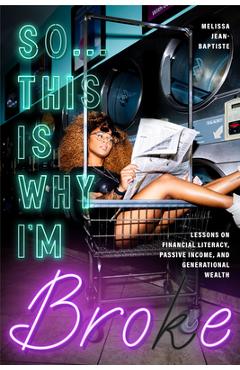Broken Money: Why Our Financial System is Failing Us and How We Can Make it Better - Lyn Alden

Detalii Broken Money: Why Our Financial
libris.ro
151.08 Lei
167.87 Lei
Business & Economics
Lyn Alden
Broken Money: Why Our Financial - Disponibil la libris.ro
Pe YEO găsești Broken Money: Why Our Financial de la Lyn Alden, în categoria Business & Economics.
Indiferent de nevoile tale, Broken Money: Why Our Financial System is Failing Us and How We Can Make it Better - Lyn Alden din categoria Business & Economics îți poate aduce un echilibru perfect între calitate și preț, cu avantaje practice și moderne.
Preț: 151.08 Lei
Caracteristicile produsului Broken Money: Why Our Financial
- Brand: Lyn Alden
- Categoria: Business & Economics
- Magazin: libris.ro
- Ultima actualizare: 28-10-2025 01:22:05
Comandă Broken Money: Why Our Financial Online, Simplu și Rapid
Prin intermediul platformei YEO, poți comanda Broken Money: Why Our Financial de la libris.ro rapid și în siguranță. Bucură-te de o experiență de cumpărături online optimizată și descoperă cele mai bune oferte actualizate constant.
Descriere magazin:
A Comprehensive Overview of the Past, Present, and Future of Money Broken Money explores the history of money through the lens of technology. Politics can affect things temporarily and locally, but technology is what drives things forward globally and permanently. The book\'s goal is for the reader to walk away with a deep understanding of money and monetary history, both in terms of theoretical foundations and in terms of practical implications. From shells to gold, from papyrus bills of exchange to central banks, and from the invention of the telegraph to the creation of Bitcoin, Lyn Alden walks the reader through the emergence of new technologies that have shaped what we use as money over the ages. And beyond that, Alden explores the concept of what money is at its very foundation to give the reader a framework to analyze and compare different types of monetary technologies and monetary theories. The book also takes a distinctively human look at how money impacts the lives of real people, and how new monetary technologies shape the power structures within society. In the modern era, energy abundance and technological enhancements have broadly improved human well-being, but the global monetary system has been slow to keep up. There are over 160 active currencies in the world, each with a local monopoly over its own country, and with little or no acceptance elsewhere. Many of them are rapidly diluted, which continually devalues the savings and the wages of the billions of people who live and work within those jurisdictions. Being born in the wrong country makes saving money far harder than it needs to be. Nigeria has a population of over 200 million people and has averaged 13% annualized inflation over the past decade. Egypt cut its currency in half relative to the dollar twice over the past decade, which instantly devalued the savings and wages of its 100 million citizens. Dozens of countries have experienced at least triple-digit year-over-year inflation within the past four decades, including Brazil that outright hyperinflated in the 1990s while it was the fifth most populous country in the world. Europe and Japan had $18 trillion worth of negative-yielding bonds in 2019, right before a wave of inflation wiped their purchasing power away. In 2021, the chairman of the U.S. Federal Reserve dismissed the idea that the sharp rise in the money supply from the pandemic stimulus would lead to price inflation. By 2022, as major i

Produse asemănătoare

So This Is Why I\'m Broke: Money Lessons on Financial Literacy, Passive Income, and Generational Wealth - Melissa Jean-baptiste
![]() libris.ro
libris.ro
Actualizat in 28/10/2025
111.55 Lei

Broken Money: Why Our Financial System is Failing Us and How We Can Make it Better - Lyn Alden
![]() libris.ro
libris.ro
Actualizat in 28/10/2025
151.08 Lei
Produse marca Lyn Alden

Broken Money: Why Our Financial System is Failing Us and How We Can Make it Better - Lyn Alden
![]() libris.ro
libris.ro
Actualizat in 28/10/2025
151.08 Lei